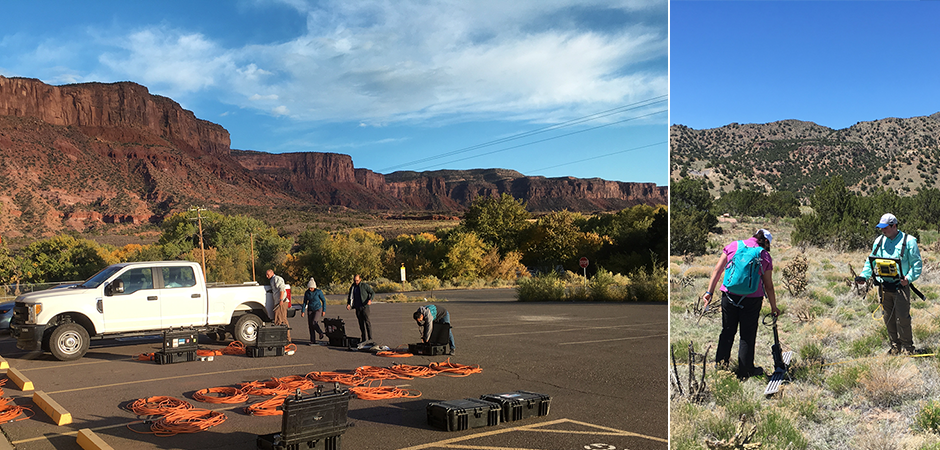
Planetary Science and Solid Earth Geosciences
Faculty and students in the School of Geosciences study a broad array of geological processes from the planetary to the mineral scale using geophysical, geochemical and geological methods, combining laboratory experiments, field studies and computer modeling.
The research enables understanding of water and other fluids in near-surface environments on Earth, Mars and other planetary bodies, and the roles of fluid and geological processes in earthquake and faulting processes in the Earth’s lithosphere. Studies in paleomagnetism provides a window into the past tectonic evolution via the magnetism “frozen” in the rock at formation, and structural geology enables us to untangle complex crustal movements through analysis of surface and subsurface deformations. Finally, seismological methods allow us to probe the deep interior of the Earth and other planetary bodies to understand the dynamic processes that shape the landform. Better understanding of solid Earth processes enables prediction and evaluation of natural hazards on the Earth’s surface, which can potentially reduce losses from these hazards, such as earthquakes and volcanoes.
Below are some of the specific sub-disciplines we are focused on. Please visit the linked faculty pages for specific projects and contact them for more information.
Paleomagnetism
Planetary Geology
Seismology and Solid Earth Geophysics
Structural Geology and Tectonics
Earthquake and Faulting Processes

